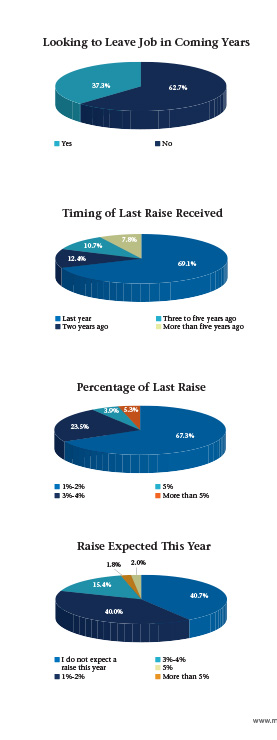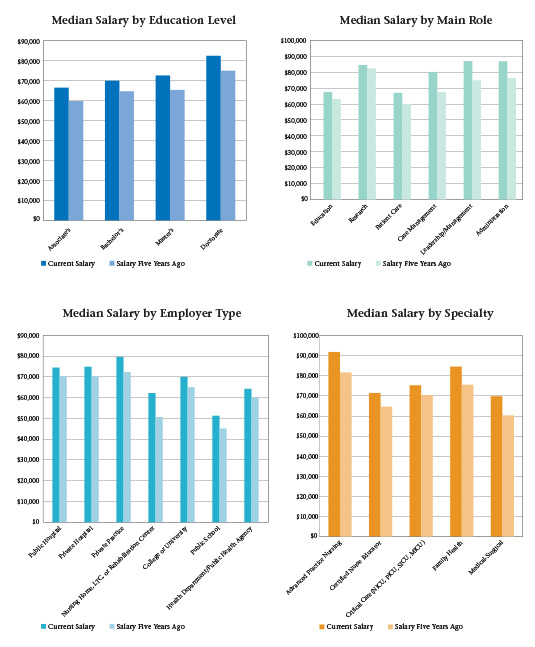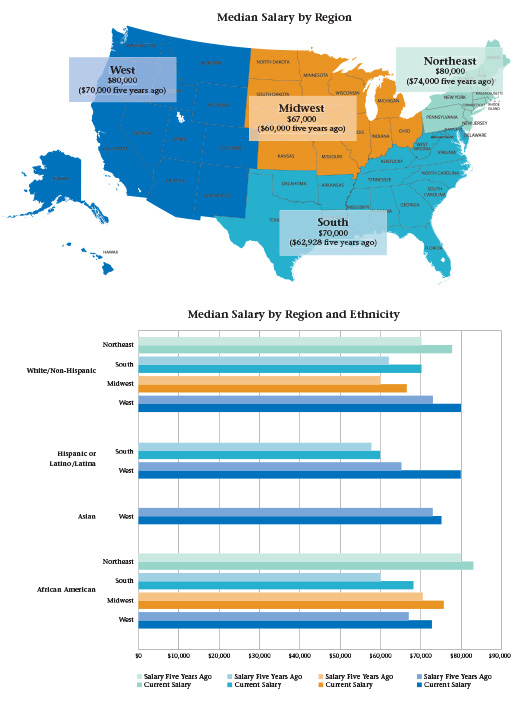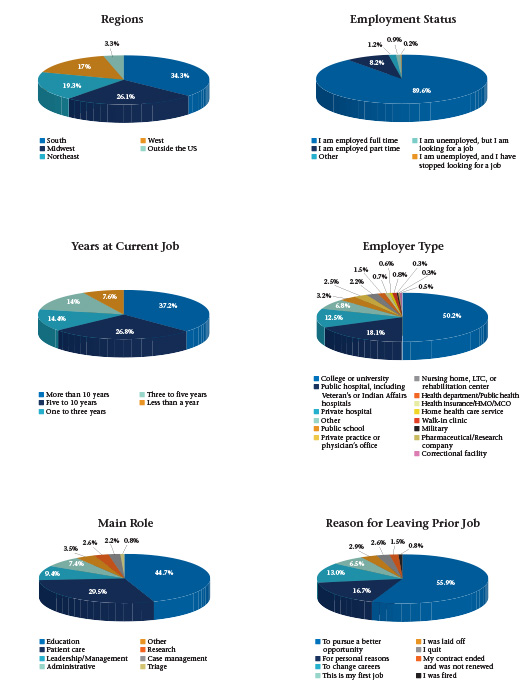
2015 Annual Salary Survey
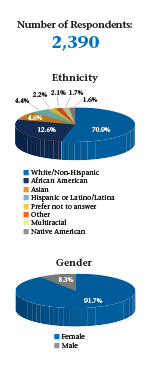
Where nurses work, as well as their education level and specialty, can all influence how much they earn in salary. But all in all, respondents to the third annual Minority Nurse salary survey report making more this year than they did last year.
With rising salaries, the outlook for nurses may be getting brighter, but there are still some differences in pay by ethnicity.
Last year, nurses reported earning a median $68,000, and this year they reported an increase that brought their median salary to $71,000—a $6,000 jump over what they’d said they earned five years ago.
While African American nurses reported earning more this year than last, a median $60,200 in 2014 as compared to this year’s $70,000, they still took home slightly less than the overall median. Hispanic and Asian nurses said they earned slightly more than the overall median salary, and more than they reported earning last year, while white nurses reported a salary close to the overall median salary and similar to what they reported taking home last year.
To collect this data, Minority Nurse and Springer Publishing e-mailed a link to an online survey that asked respondents about their jobs, educational background, ethnicity, and more.
Nearly 2,400 nurses from a variety of backgrounds and filling different job descriptions responded to the survey to provide a glimpse into their day-to-day roles, their plans for the future, and their current and past salaries.
The respondents work in various aspects of nursing from patient care to education and research, and have certifications in critical care, advanced practice nursing, and family health, among others. The nurses also work for a range of employers, from large organizations with more than 10,000 employees to ones with a hundred or fewer employees, and from public hospitals to colleges to home health care services.
Drilling down deeper into the data, wider gaps in pay start to emerge. For instance, white nurses working at private hospitals earn a median $80,000, while African American nurses earn a median $62,000. Similarly, at public hospitals white nurses earn $79,500, and African American nurses $71,000. However, nurses employed by college or universities reported largely similar salaries falling between $70,000 and $80,000, with African American and Asian nurses reporting receiving the higher end of that range.
Salaries also vary by region in the United States. Nurses take home the most in the Northeast, followed by the West, though there also appear to be slight variations by ethnicity as white and Hispanic nurses living in the western US earn a median $80,000, while African American nurses earn a median $73,000.
Education also affects take-home pay, and nurses reported higher salaries with increased education. Nurses with associate’s-level degrees reported earning $67,000, while nurses with bachelor’s-level degrees said they earned $70,000. And that increased further with advanced degrees as those with master’s degrees reported taking home a median $72,000 and those with doctoral degrees said they made $82,000.
There, too, were slight differences by ethnicity. For instance, African American nurses with associate’s-level degrees reported taking home a median $65,119, less than the overall median, while white nurses took home a median $68,320, slightly more than the median. At the bachelor’s and doctoral levels, though, African American and white nurses reported earning approximately the same salary.
Despite rising salaries—and recent raises—more than a third of nurses still said they are contemplating leaving their current jobs in the next few years. When they left previous jobs, respondents said it was mostly to pursue better opportunities, and this year’s respondents reported that the best-paying places to work are in private practice or at private or public hospitals.

